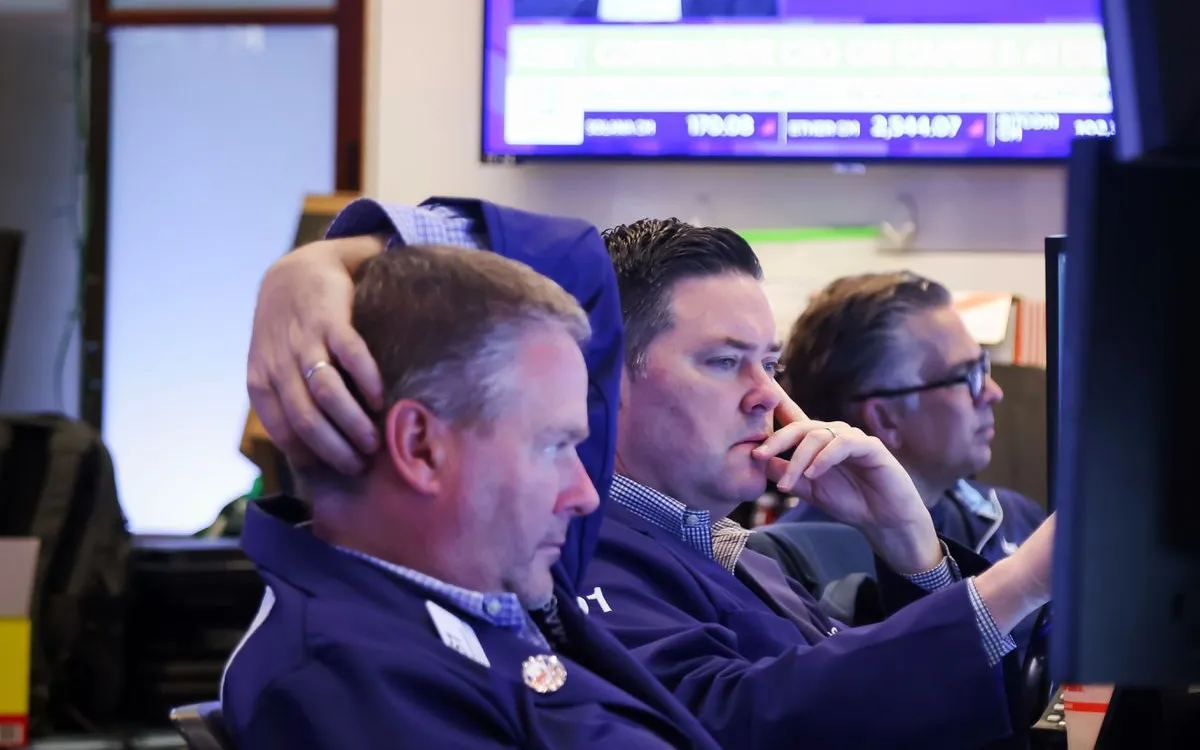
Quantum Computing (QUBT) experienced a significant surge in its stock price on Friday, following the announcement of strong earnings. The company, which specializes in photonic and quantum optics technology, reported a profit driven by benefits from a previous acquisition and an increasing demand for its innovative thin film lithium niobate photonic chips. In its first-quarter earnings report, Quantum Computing revealed a net income of $17 million, or $0.11 per share, a remarkable turnaround from a loss of $6.4 million, or $0.08 per share, recorded the previous year. Revenue also saw a notable increase, rising to $39,000 from $27,000.
The company attributed its gain in net income primarily to a substantial non-cash gain of $23.6 million, resulting from the mark-to-market valuation of its warrant liability, a direct consequence of its merger with QPhoton in June 2022. Interim CEO Dr. Yuping Huang highlighted that during this period, the firm completed the construction of its Quantum Photonic Chip Foundry located in Tempe, Arizona. Huang expressed optimism about the company’s early traction, which he views as the first step toward capitalizing on significant, multi-year opportunities in expanding markets such as datacom, telecom, and quantum-enabled applications.
Moreover, Quantum Computing is strengthening its partnerships with both government and commercial entities, further enhancing interest in its quantum and photonic machines. This positioning aims to enable the company to capitalize on emerging opportunities in the burgeoning tech landscape. In stark contrast, Rigetti Computing (RGTI), another player in the quantum computing sector, reported a decline in quarterly sales earlier this week. Following the positive earnings news, Quantum Computing shares surged by 35% in recent trading, although it's important to note that despite this impressive gain, the stock remains down 25% since the beginning of 2025.
Cava Group (CAVA) saw its stock decline on Friday, a day after the Mediterranean fast-casual chain announced better-than-expected earnings. Despite exceeding earnings forecasts, the company's outlook tempered investor enthusiasm. Cava maintained its full-year same-restaurant sales growth estimates between 6.0% and 8.0%, as well as its restaurant-level profit margin guidance of 24.8% to 25.2%. Additionally, the company raised its projections for pre-opening costs, now estimating between $14.5 million and $15.5 million, up from earlier estimates of $14.0 million to $15.0 million.
On a brighter note, Cava increased its forecast for net new restaurant openings to a range of 64 to 68, compared to the previous estimate of 62 to 66. The company also adjusted its expected adjusted EBITDA to a range of $152.0 million to $159.0 million, up from $150.0 million to $157.0 million. In the first quarter, Cava reported earnings per share of $0.22, with revenue soaring 28% year-over-year to $331.8 million, both figures surpassing Visible Alpha forecasts. Same-restaurant sales grew by 10.8%, and traffic increased by 7.5% during this period.
Co-founder and CEO Brett Schulman emphasized that despite economic uncertainties and weather-related challenges, the performance reflects the ongoing strength of Cava's brand. Analysts at JPMorgan have remained optimistic, reaffirming their buy rating on the stock, indicating that Cava is performing well in a challenging environment. Following this news, Cava shares were down 4%, and the stock has lost approximately 16% of its value since the year began.
Novo Nordisk (NVO) faced a decline in its U.S.-listed shares on Friday due to the unexpected announcement of CEO Lars Fruergaard Jørgensen's departure. The Danish pharmaceutical company, known for its blockbuster weight-loss medications Ozempic and Wegovy, stated that Jørgensen's resignation was a mutual decision. He will remain in his role while the company searches for a successor. Novo Nordisk has indicated that this leadership change stems from recent market challenges and a decline in its share price since mid-2024.
Despite the leadership transition, the company's strategy is reportedly unchanged. Board chair Helge Lund expressed confidence in Novo Nordisk's current business plans and its ability to execute these plans successfully. The stock had previously surged to record highs in the first half of last year, thanks to soaring sales of its weight-loss drugs. However, as of Friday, shares have declined by over 50% in the last year, attributed to slowing sales growth and studies indicating that the active ingredient in Eli Lilly's (LLY) Mounjaro and Zepbound may lead to greater weight loss than Novo Nordisk's offerings. Recently, Novo Nordisk shares were down by 4%.
Advanced Micro Devices (AMD) shares rose in premarket trading after experiencing a decline on Thursday, marking the end of a seven-session winning streak. The chip designer's stock rallied to its highest level since early February after the company announced an additional $6 billion allocation to its share repurchase plan, increasing the total buyback program to $10 billion. This announcement followed a collaboration with AI giant Nvidia (NVDA), where the two companies agreed to supply semiconductors to a Saudi Arabian AI startup, coinciding with President Trump's four-day trip to the Middle East.
As of Thursday's close, AMD shares had appreciated by 50% from their early-April lows and had gained 17% since May 6, when the company released better-than-expected earnings and an optimistic outlook fueled by AI momentum. On Friday, AMD shares were up 2.5% around $118 before the market opened. Investors are advised to monitor crucial support levels around $110 and $96, as well as resistance levels near $132 and $150. Additionally, while the recent bullish momentum is strong, the relative strength index (RSI) indicates overbought conditions, suggesting a potential near-term consolidation phase may be on the horizon.